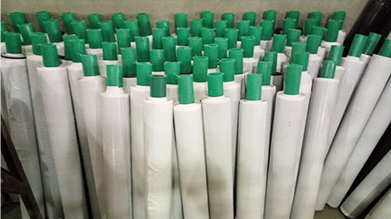Foam Weather Stripping for Windows An Essential Guide
When it comes to home energy efficiency, one of the most effective yet often overlooked solutions is weather stripping. Among the various materials available, foam weather stripping stands out due to its ease of use, affordability, and excellent insulation properties. This article explores the benefits, application, and maintenance of foam weather stripping for windows, helping homeowners enhance their living spaces while saving on energy costs.
Understanding Foam Weather Stripping
Foam weather stripping is made from various types of soft foam, often compressed for durability. It comes in various densities and thicknesses, allowing homeowners to choose the right type for their specific needs. The material is self-adhesive, which simplifies installation—simply peel and stick to the edge of the window frame. This type of weather stripping is particularly effective for sealing gaps around windows that often let in drafts, moisture, and noise.
Benefits of Using Foam Weather Stripping
1. Energy Efficiency The most significant advantage of foam weather stripping is its ability to reduce air leaks around windows. This translates to lower heating and cooling costs, making your home more energy-efficient. By preventing drafts, you create a more stable indoor temperature, which is especially important during extreme weather conditions.
2. Noise Reduction Foam weather stripping can also help to dampen outside noise. By sealing gaps, it creates a barrier that blocks unwanted sounds from entering your home, leading to a quieter and more comfortable living environment.
3. Easy Installation One of the key selling points of foam weather stripping is its straightforward installation process. Most foam strips come with an adhesive backing, allowing homeowners to cut them to size and simply stick them in place without the need for special tools.
foam weather stripping windows

4. Affordability Compared to other weather stripping materials such as metal or rubber, foam is generally more affordable and widely available. This cost-effectiveness makes it accessible for budget-conscious homeowners looking to improve their windows' efficiency.
Application Process
To apply foam weather stripping, start by cleaning the window frame thoroughly to ensure a strong bond. Measure the gaps around the window and cut the foam to size. Peel off the backing and press the foam into place, ensuring it adheres well. The installation can typically be completed within an hour, making it a quick home improvement project.
Maintenance and Longevity
Foam weather stripping is durable, but exposure to the elements may cause it to wear down over time. Periodically check for signs of wear, such as cracking, peeling, or compression, and replace any damaged sections. With proper maintenance, foam weather stripping can last several years, providing continued energy savings.
Conclusion
Foam weather stripping for windows is a practical solution for enhancing your home's energy efficiency, comfort, and aesthetic appeal. By investing a little time and money into this simple improvement, you can enjoy a more comfortable living space while reducing your energy bills. Whether you’re completing minor repairs or undertaking a larger renovation project, foam weather stripping should be on your list of home improvement essentials.
-
XIANGFAN Rubber Tape-Ultimate Solutions for All Your Insulation NeedsNewsJun.24,2025
-
XIANGFAN Rubber Tape-Protection for Industrial and Residential ApplicationsNewsJun.24,2025
-
XIANGFAN Rubber Tape: Superior Safety and Sealing for Demanding EnvironmentsNewsJun.24,2025
-
XIANGFAN Rubber Tape: Reliable Solutions for Every Electrical ChallengeNewsJun.24,2025
-
XIANGFAN Electrical & Industrial Tape: Powering Reliability Across IndustriesNewsJun.24,2025
-
XIANGFAN Electrical & Industrial Tape: Excellence in Every ApplicationNewsJun.24,2025
